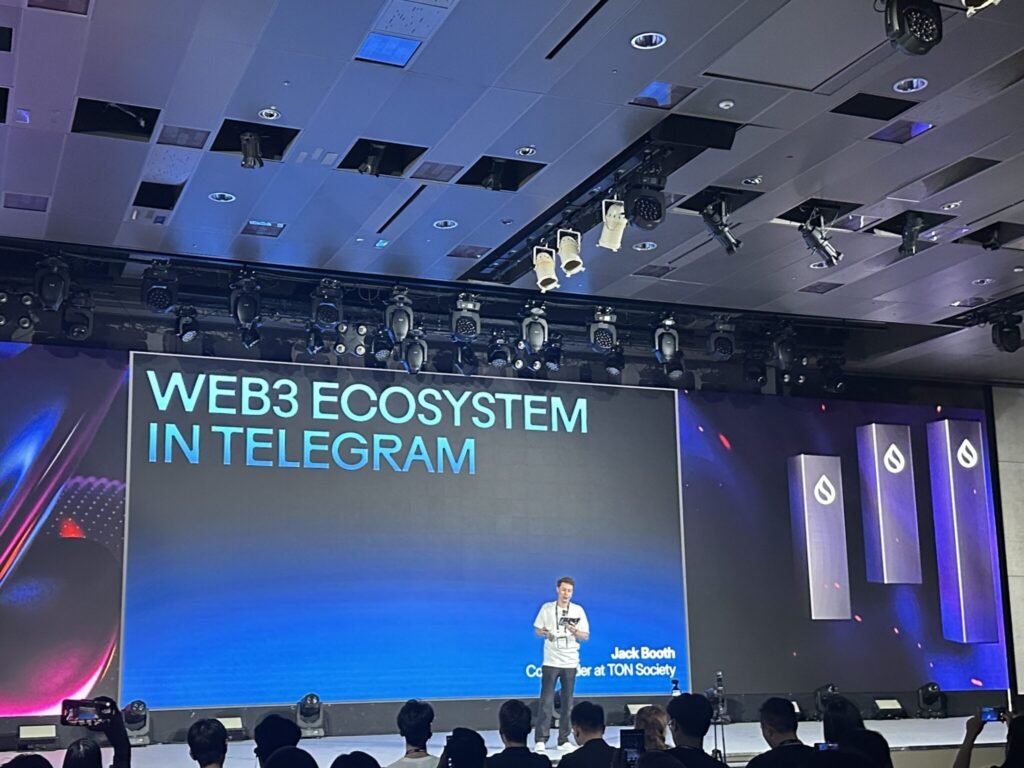Overview of Korea Blockchain Week (KBW 2024)
The Korea Blockchain Week (KBW) in Seoul gathered 17,000 attendees and over 300 speakers, including prominent figures like Vitalik Buterin and Richard Teng, as well as emerging entrepreneurs. This major event showcased the current trends, challenges, and innovations in blockchain technology, with a focus on scaling, regulation, and the need for real-world use cases that could revolutionize industries such as insurance, law (lawyers), and financial services.

Blockchain’s Technical Evolution
For years, scalability issues, such as high transaction fees and slow speeds, have plagued blockchain technology. The advent of Layer-2 solutions, like Ethereum’s rollups, has significantly improved transaction times and reduced costs. These improvements allow for millions of transactions per day, solving many of the technology’s historical limitations. However, mass adoption still lags behind due to a lack of practical consumer applications in sectors such as mortgages, credit, and loans, where efficiency is crucial.
Real-World Applications of Blockchain
As highlighted by Simon Kim, CEO of Hashed, the industry is transitioning from building infrastructure to developing real-world applications. Examples include Story, which raised $80 million to build a blockchain for tracking IP content usage, and Sony Block Solutions Labs’ launch of Soneium, a public blockchain that aims to protect creators’ rights and share profits more fairly.
Steve Lee, co-founder of Neoclassic Capital, emphasized the need for consumer-oriented applications. His firm is bullish on sectors like gaming, entertainment, and social applications, particularly in Asia, where countries like Japan and Korea are leaders in technological adoption. He believes Asia has greater potential for Web3 use cases compared to Western markets, citing the region’s strong engagement in gaming and entertainment, and the rise of decentralized finance (DeFi) impacting areas such as student loans and personal loans.
Blockchain Integration with Traditional Enterprises
Companies are increasingly exploring how to integrate blockchain into existing products. Justin Kim from Ava Labs mentioned that organizations such as California DMV, Nexon MapleStory Universe, and JP Morgan are launching custom blockchains on platforms like Avalanche. Tokenization of assets is also gaining momentum, with initiatives like Republic’s tokenized film financing and Questry’s animation production fund on the rise.
Stablecoins are entering the mainstream through platforms like PayPal, which recently launched PYUSD. Messaging apps such as Line and Telegram have also integrated crypto wallets, signaling broader adoption of blockchain technology in everyday financial transactions, especially in areas involving online degrees, financial aid, and wealth management.
Gaming and NFTs
The gaming industry is seeing a surge of blockchain-based projects. While earlier efforts were experimental, newer projects are incorporating high-quality games with tokens or NFTs. According to Simon Kim, these AAA games are expected to hit the market soon, boosting blockchain’s relevance in the gaming sector, with potential applications in industries like cloud hosting and web hosting, where digital assets are key.
However, Yat Siu, co-founder of Animoca Brands, pointed out that blockchain gaming projects have faced challenges. He likened the current state of NFTs to the early internet: underwhelming at first, but with potential for exponential growth, particularly as the need for secure digital data hosting increases.

Image credits: Kate Park under a TechCrunch license.
Regional Adoption and the Role of Regulation
Diederik van Wersch, regional director at Chainalysis, noted that cryptocurrency adoption is now more evenly distributed across both developed and developing countries. While lower-income nations led adoption in 2023, the launch of Bitcoin ETFs has driven adoption globally. Singapore and Indonesia are examples of regions where crypto is becoming more integrated into daily financial services.
Despite these advancements, regulation remains a major hurdle. Several Asian countries, including Japan, Singapore, and the UAE, have established regulatory frameworks, but many regions still face uncertainty. The upcoming U.S. election could impact the regulatory landscape, particularly as the country grapples with how to manage cryptocurrencies, insurance policies, and lawyers‘ roles in the field of digital assets.
Conclusion
The KBW highlighted both the promise and challenges of blockchain technology. While scalability and infrastructure have improved, mainstream adoption requires real-world use cases and clearer regulatory frameworks. As regions like Asia continue to innovate and experiment with blockchain, the industry awaits the next wave of practical applications that can drive wider adoption across industries, including financial loans, web hosting, and insurance.
FAQ
1. What is Korea Blockchain Week (KBW)?
KBW is a major annual event where industry leaders, developers, and entrepreneurs gather to discuss trends, innovations, and challenges in blockchain technology. Discussions cover diverse sectors, including insurance, mortgages, and loan services.
2. What are Layer-2 blockchains?
Layer-2 blockchains are secondary frameworks built on top of primary blockchains like Ethereum, enabling faster and cheaper transactions. These solutions can be beneficial for industries requiring fast transaction processing, such as mortgages and student loans.
3. How is blockchain being applied in the real world?
Real-world applications include IP content tracking, tokenized asset classes, and blockchain gaming, all designed to enhance consumer services and rights management. Blockchain also offers new solutions for industries like cloud hosting, insurance, and financial services.
4. Why is regulation important for blockchain?
Clear regulations are essential to ensure legal frameworks for blockchain technology, allowing for broader institutional and consumer adoption in key areas like mortgage lending, wealth management, and lawyers specializing in digital assets.
5. What role does Asia play in blockchain adoption?
Asia is seen as a leader in adopting blockchain for gaming, entertainment, and financial services, with countries like Japan and Korea leading in technology implementation. The region has great potential in sectors like hosting services and insurance.

